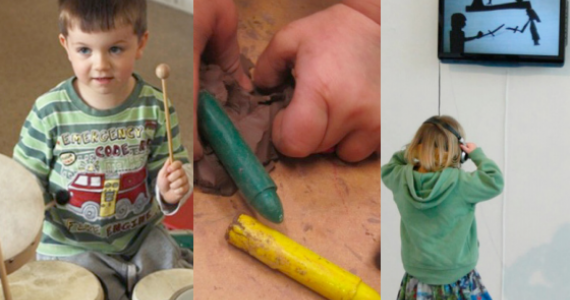Early years arts: international evidence and practice

An international survey of effective practice and evidence of impacts for arts in the early years
Earlyarts were commissioned by Arts Council Ireland to write a policy paper to inform the development of a national strategy for early childhood arts in Ireland. Ruth Churchill Dower and I produced the paper, which forms Part III of this ACIE research report. This paper brings together an analysis of the early childhood arts environment in Ireland, international perspectives on what has worked well in early childhood arts, evidence of impacts of early childhood arts, and case studies of different practices and approaches. Finally, we put forward considerations on the characteristics of success that might influence an early childhood arts strategy for Ireland.
As part of this research, we undertook a comprehensive analysis of the evidence of impacts of arts in the Early Years, which are summarised below.
Evidence of the impacts of early childhood arts
There is a strong body of evidence pointing to the importance and value of early childhood arts, for children’s learning and development, for family and community, and for society in general:
- High quality arts experiences in early childhood have a very significant impact on learning and development, with, in many cases, life-long impact.
- Early childhood arts can have significant positive impacts on parent-child relationships and on engaging families in further arts and cultural opportunities.
- Effective arts interventions can lead to decreased social problems and inequality.
- High quality arts experiences in early childhood can impact the brain’s development in other areas: for instance music activities can help language learning.
- Creative, play-based experiences in early childhood can lead to formation of well-rounded personalities with better mental health.
- Early childhood arts can help develop intrinsic human qualities, such as creativity, expression, identity, culture and imagination.
- Early childhood arts can impact positively on confidence, self-esteem, agency and behavioural health.
- Early childhood arts can impact on cognitive development by enhancing a wide range of curriculum foci (e.g. language development, numeracy, literacy, personal/social/emotional/ physical/spiritual development and understanding of people and cultures).
- Early childhood arts can lead to a direct improvement in academic achievements.
- Early childhood arts can help to improve the practice and pedagogy in early childhood settings, including professionals’ confidence and understanding of child development.
- When introduced into early childhood training and workforce development, the arts can have an indirect but important effect on children’s engagement in learning.
- Early childhood arts can have a strong impact on children’s subsequent abilities in the arts.
- Collaborations that encompass the perspective of artists, early childhood professionals, children and parents can result in a much deeper understanding of, and attention to, a child’s needs and interests, leading to fulfilment both immediately and later on in life.








Add comment